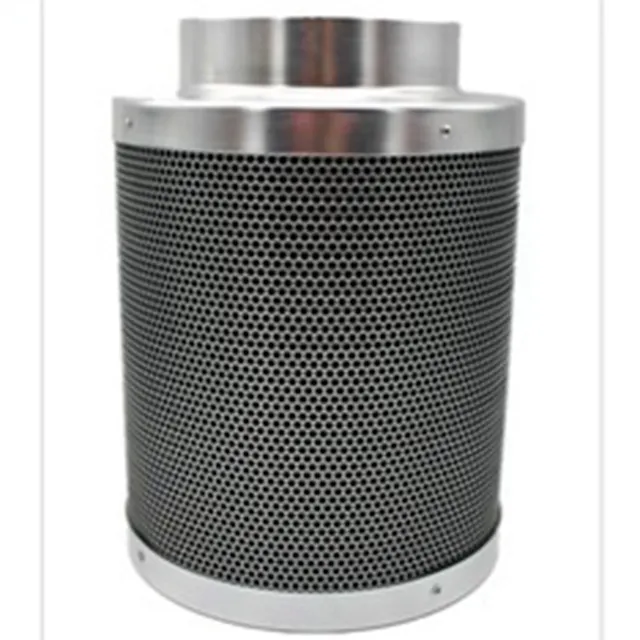 Tel:
+8618931101301
Tel:
+8618931101301
12 月 . 03, 2024 17:43 Back to list
ss sintered filter
Understanding SS Sintered Filters A Comprehensive Overview
In today’s industrial landscape, filtration solutions play a crucial role in ensuring the quality and safety of products across various sectors. Among the myriad of filtration technologies available, SS (Stainless Steel) sintered filters have gained popularity due to their unique properties and versatile applications. This article aims to explore the characteristics, advantages, and applications of SS sintered filters, providing a comprehensive understanding of this indispensable tool in modern filtration systems.
What are SS Sintered Filters?
SS sintered filters are made from stainless steel powder that has been subjected to a high-temperature sintering process. This technique involves heating the stainless steel particles until they fuse together, creating a porous structure. The resulting filter is not only robust and durable but also features precise porosity, making it suitable for a wide range of filtration needs.
The pores in the sintered filter can be engineered to specific sizes, typically ranging from 0.2 microns to several hundred microns. This specificity allows for the effective separation of different particles, ensuring that only the desired substances pass through while contaminants are left behind.
Key Characteristics of SS Sintered Filters
1. High Strength and Durability Unlike conventional filters that can succumb to pressure or corrosive environments, SS sintered filters boast high mechanical strength. Their robustness makes them ideal for harsh industrial conditions.
2. Temperature Resistance Stainless steel can withstand high temperatures, making these filters suitable for applications involving hot fluids or gases. This property is crucial in industries such as petrochemical and pharmaceutical production, where temperature control is vital.
3. Corrosion Resistance The inherent properties of stainless steel provide excellent resistance to corrosion. This makes SS sintered filters reliable for use in environments that would otherwise degrade standard materials.
4. Reusability and Easy Cleaning One of the standout features of SS sintered filters is their ability to be cleaned and reused. Unlike single-use filters, sintered filters can be backwashed or mechanically cleaned, making them a cost-effective solution over time.
5. Customizable Porosity The ability to customize pore sizes allows for the filtration of a wide range of particles, from large debris to fine particulate matter. This flexibility is essential in industries requiring different filtration specifications.
Advantages of SS Sintered Filters
The advantages of utilizing SS sintered filters in industrial applications are numerous
ss sintered filter

- Cost Efficiency Although the initial investment may be higher compared to other filtration options, the long lifespan and reusability of sintered filters often result in significant cost savings in the long run.
- Maintenance Reduction The durability and self-cleaning capabilities of these filters lead to reduced maintenance needs, allowing operations to run smoothly and efficiently.
- Enhanced Filtration Performance With superior structural integrity and customizable porosity, SS sintered filters can achieve higher filtration efficiency, thus improving product quality and safety
.- Environmentally Friendly The reusability of these filters reduces waste, making them a more environmentally sustainable option compared to disposable filters.
Applications of SS Sintered Filters
SS sintered filters are employed across various industries for diverse applications
1. Chemical Processing Their resistance to aggressive chemicals makes them suitable for filtering corrosive liquids during chemical manufacturing processes.
2. Water Treatment SS sintered filters are used in wastewater treatment plants to remove larger particles and contaminants, contributing to cleaner water being released back into the environment.
3. Pharmaceutical Industry These filters ensure high purity levels in drug production processes, maintaining stringent quality and safety standards.
4. Food and Beverage Production In this sector, SS sintered filters help maintain the quality of products by removing impurities, microorganisms, and particulate matter.
5. Oil and Gas In the oil and gas sector, sintered filters are critical in protecting sensitive equipment from particulates that could cause operational failures.
Conclusion
In conclusion, SS sintered filters represent a vital component in modern filtration systems due to their robustness, versatility, and efficiency. Their unique characteristics make them suitable for a wide array of industrial applications, ultimately enhancing product quality and operational efficiency. As industries continue to evolve and demand higher standards of filtration, the reliance on advanced technologies like SS sintered filters is poised to grow, paving the way for safer and cleaner production processes worldwide.
-
How to choose a high-efficiency air filter? Here comes a professional guideNewsOct.21,2024
-
Air filter: multi-field application, protecting fresh airNewsOct.17,2024
-
Carbon air filter: a green guard to protect air qualityNewsOct.16,2024
-
Can activated carbon completely remove indoor odors and pollutants in air purification?NewsOct.14,2024
-
How to filter air efficiently and ensure indoor air quality?NewsOct.12,2024
-
Activated carbon filter: the invisible guard of clean water lifeNewsOct.11,2024

 Email:
Email:





